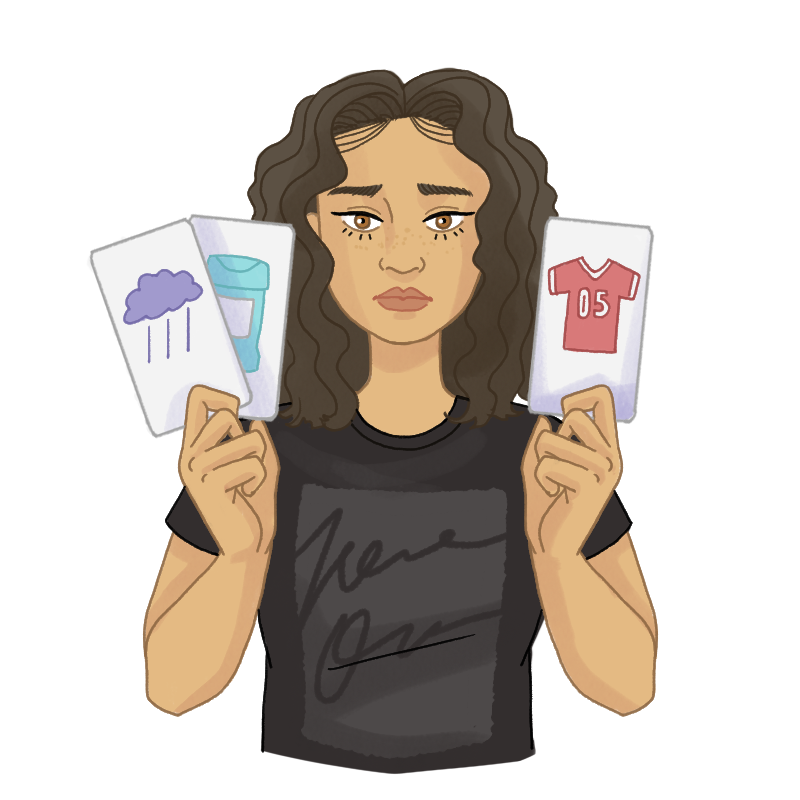





Chapter 5. The Cues Copy

“I think I’m following ‘The Square’ concept,” Tasha says. “But in life, I don’t know when another neighbor is gonna yell at me, or when something will make me feel bad. How do I deal with things that are out of my control?”
“That’s a great question, Tasha, and I think to answer it, we should talk about ‘cues.’ A cue is a reminder of your traumatic experience, it can be anything in the environment,” you say as you gesture around the room. “A person, a place, a color, a smell, an object. It’s something that we normally wouldn’t pay attention to, something neutral, but because you’ve had these traumatic experiences, it’s become associated with that experience. So your body, in a way, learned to react to this cue in the same way you did to the original trauma.”
“Trauma is usually negative. Is it the same for cues?”
“A cue is always something that, on its own, is neutral,” you respond. “Neither positive nor negative. But it was formerly neutral, and now it’s tied to something that’s negative.”
Tasha tilts her head slightly to the side.
“Let’s talk through an example. What would we do if, say, an earthquake happened right now?”
“An earthquake?” Tasha repeats. “I don’t know, hide under the table?”
“Exactly,” you reply with a single nod. “And how do you think we’d feel in that situation?”
“I know I’d be scared out of my mind.”
You chuckle. “I would, too. And our hearts would start beating faster, or we might feel shaky. Those are all normal reactions when there’s a real earthquake going on. But then, a month later after the earthquake is over…” You gesture around your office. “If we come into this same room, and we sit down, we might start feeling anxious. Our hearts might start pounding again. Why do you think that is?”
“Because the room reminded us of the earthquake?”
“That’s absolutely right!”
“So the room kind of became a cue?”
“Not kind of, it has. Because the earthquake happened in this room, our bodies and minds have learned that we need to be afraid of this room, even though there’s no real reason to, now. So something that used to be neutral is not neutral anymore, because it’s associated with that negative event.”
Tasha doesn’t respond as she soaks all this in. She suddenly looks up at you. “Can a knife or a gun be a cue?”
“No,” you reply after a pause. “Things that are actually threatening, like those dangerous objects, are not considered cues.”
